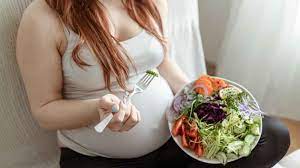Introduction
Nutrition plays a fundamental role in every aspect of health — and reproductive health is no exception. The foods we eat directly influence hormonal balance, menstrual regularity, fertility, pregnancy outcomes, and even the health of future generations. For both men and women, a nutrient-rich diet supports the proper functioning of the reproductive system, enhances fertility, and reduces the risk of reproductive disorders.
In this article, we’ll explore how nutrition affects reproductive health, the essential nutrients involved, and the best dietary habits to support hormonal and reproductive balance.
Understanding the Connection Between Nutrition and Reproductive Health
The reproductive system is closely linked to the body’s endocrine system, which controls hormones responsible for ovulation, sperm production, and sexual health. Poor dietary choices, nutrient deficiencies, and unhealthy eating patterns can disrupt this delicate hormonal balance, leading to irregular cycles, infertility, and other reproductive issues.
A balanced diet ensures that the body gets the right amount of vitamins, minerals, antioxidants, and macronutrients to keep the reproductive organs healthy and functioning efficiently.
Key Nutrients for Reproductive Health
1. Folic Acid (Vitamin B9)
Folic acid is crucial for women of childbearing age. It supports cell division and DNA synthesis, preventing birth defects like neural tube abnormalities.
- Sources: Leafy greens, lentils, oranges, fortified cereals, and beans.
- Benefits: Promotes healthy ovulation and early pregnancy development.
2. Iron
Iron helps in oxygen transport and supports menstrual health. Iron deficiency can cause anemia, irregular periods, and fatigue.
- Sources: Lean red meat, spinach, lentils, fortified grains, and pumpkin seeds.
- Benefits: Maintains healthy blood flow and supports implantation during pregnancy.
3. Zinc
Zinc plays a key role in hormone regulation and fertility for both men and women.
- Sources: Oysters, chickpeas, beef, nuts, and whole grains.
- Benefits: Improves egg quality, sperm count, and testosterone production.
4. Omega-3 Fatty Acids
These healthy fats help reduce inflammation and promote hormone production.
- Sources: Salmon, chia seeds, walnuts, flaxseeds, and sardines.
- Benefits: Regulate menstrual cycles and improve uterine health.
5. Vitamin D
Known as the “sunshine vitamin,” vitamin D affects reproductive hormone balance and fertility.
- Sources: Sun exposure, fortified milk, eggs, and fatty fish.
- Benefits: Supports ovulation and enhances sperm quality.
6. Antioxidants (Vitamin C, E, and Selenium)
Antioxidants protect reproductive cells from oxidative stress, which can damage eggs and sperm.
- Sources: Berries, citrus fruits, almonds, sunflower seeds, and green tea.
- Benefits: Delay age-related decline in fertility and promote overall reproductive longevity.
7. Protein
Protein supports hormone production and cell repair.
- Sources: Lean meats, tofu, legumes, eggs, and Greek yogurt.
- Benefits: Maintains muscle health and balances blood sugar, supporting reproductive hormone stability.
8. Magnesium and Calcium
These minerals are essential for hormone function and egg maturation.
- Sources: Dark leafy greens, nuts, seeds, and dairy products.
- Benefits: Relieve PMS symptoms and support menstrual regularity.
Nutrition and Female Reproductive Health
1. Regulating Menstrual Cycles
Balanced nutrition helps regulate estrogen and progesterone levels, preventing irregular periods and painful cramps.
2. Supporting Fertility
Women who consume diets rich in whole grains, fruits, vegetables, and unsaturated fats have higher chances of conception compared to those with diets high in refined carbs and trans fats.
3. Pregnancy Health
During pregnancy, nutrients like folic acid, iron, and calcium are crucial for fetal development and preventing complications such as preterm birth and low birth weight.
4. Managing PCOS and Hormonal Disorders
A low-glycemic diet that limits refined carbohydrates helps reduce insulin resistance and balance hormones in women with PCOS (Polycystic Ovary Syndrome).
Nutrition and Male Reproductive Health
Nutrition is equally important for men, as sperm health significantly influences conception.
- Zinc and Selenium: Improve sperm count and motility.
- Vitamin C and E: Reduce DNA damage in sperm caused by oxidative stress.
- Omega-3 Fatty Acids: Enhance sperm shape and function.
- Avoiding Processed Foods: Reduces exposure to trans fats and chemicals that harm sperm quality.
A diet high in antioxidants and low in processed foods improves overall male fertility and reproductive performance.
Foods That Boost Reproductive Health
| Food Type | Examples | Benefits for Reproductive Health |
|---|---|---|
| Leafy Greens | Spinach, kale, Swiss chard | Support ovulation and iron levels |
| Fruits | Berries, oranges, bananas | Provide antioxidants for egg and sperm protection |
| Whole Grains | Brown rice, oats, quinoa | Regulate hormones and blood sugar |
| Lean Protein | Chicken, eggs, fish | Aid cell repair and hormone production |
| Healthy Fats | Avocados, nuts, olive oil | Improve fertility and reduce inflammation |
| Dairy | Yogurt, milk, cheese | Provide calcium and vitamin D |
| Seeds | Flaxseeds, chia seeds | Contain omega-3s for hormone health |
Nutrition Habits to Avoid for Reproductive Wellness
- Excessive Caffeine: High caffeine intake is linked to decreased fertility and increased miscarriage risk.
- High Sugar Consumption: Leads to insulin resistance and hormonal imbalance.
- Alcohol and Smoking: Both can impair egg and sperm quality.
- Crash Diets or Starvation: Restrictive diets disrupt ovulation and hormone production.
- Processed Foods: Contain trans fats and additives that may reduce fertility.
How to Build a Fertility-Friendly Diet
- Eat balanced meals with a combination of carbs, protein, and healthy fats.
- Choose organic produce when possible to minimize exposure to pesticides.
- Stay hydrated — water aids hormone transport and detoxification.
- Include fiber-rich foods to support digestion and estrogen metabolism.
- Maintain a healthy body weight, as both underweight and obesity affect reproductive hormone levels.
The Role of Supplements
If your diet lacks certain nutrients, your doctor may recommend supplements such as:
- Prenatal vitamins (for women planning pregnancy)
- Omega-3 capsules for inflammation control
- Vitamin D and calcium for hormonal balance
- Coenzyme Q10 (CoQ10) for egg and sperm quality
However, supplements should always complement — not replace — a healthy diet.
Conclusion
Nutrition is one of the most powerful tools for maintaining reproductive health. A diet rich in whole, unprocessed foods, antioxidants, vitamins, and minerals supports hormonal harmony, fertility, and long-term wellness for both men and women. By making conscious dietary choices and avoiding harmful habits, individuals can protect and enhance their reproductive potential naturally.





